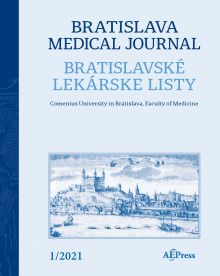Bratislava Medical Journal Vol.125, No.8, p.468–471, 2024
|
| Title: Adaptive post-COVID-19 immune response in female subjects of the Russian arctic region |
| Author: Lyubov S. SHCHEGOLEVA, Mohammad-Sohib KABBANI, Elizaveta Y. SHASHKOVA, Oksana E. FILIPPOVA, Ekaterina V. POPOVSKAYA, Tatyana B. SERGEEVA, Olga S. MOROZOVA |
|
Abstract: The Arctic region’s unfavorable living conditions adversely affect the spread of infectious diseases, including COVID-19, This, in turn, can also lead to increased morbidity and mortality rates in the area due to a number of factors such as climate, environment, and high prevalence rate of pre-existing health issues like diabetes, obesity, and respiratory infections. These circumstances adversely affect maintaining the level of working capability. The aim of this paper is to investigate the ratio of immunocompetent cells involved in the adaptive post-COVID-19 immune response. The research includes an immunological assessment of 29 women aged 20-40 years residing in Arkhangelsk, Russia, six months after recovering from COVID-19. The count of leukocytes in the peripheral blood and their differential were evaluated using standard methods to assess the immunological status. To delve deeper into the immunological landscape, phenotypes of lymphocytes (CD5+, CD8+, CD10+, and CD95+) were evaluated using an indirect immunoperoxidase reaction with monoclonal antibodies on dried drop lymphocyte preparations. After incubating blood with latex molecules, the activity and quantity of phagocytes were assessed using a light microscope. The neutrophil/lymphocyte ratio was found to be inverted in the female subjects under investigation. The high concentration of cytotoxic T-lymphocytes (CD8+) and lymphocytes with apoptotic receptors (CD95+) suggests a potential correlation with a concurrent reduction in the expression of the total T-cell marker (CD5+) across all cases. This association was further linked to a decrease in lymphoproliferative activity and a relative decline in phagocytic activity. These findings led us to posit that the total recovery time after COVID-19 might extend beyond six months, indicative of a prolonged impact on the body’s protective capacity. Our observations prompt the hypothesis that cellular immunity plays a crucial role in determining the severity of COVID-19 infection. Specifically, individuals with initially robust phagocytic activity may be predisposed to experiencing a milder form of the infection. However, this assumption warrants further investigation and clarification in individuals with moderate and severe disease progression (Tab. 1, Ref. 17).
|
|
| Keywords: arctic, COVID-19, cytotoxic t-lymphocytes, apoptosis, lymphoproliferation, cellular immunity, phagocytic activity |
|
|
Published online: 14-Jun-2024
|
| Year: 2024, Volume: 125, Issue: 8 |
Page From: 468, Page To: 471 |
doi:10.4149/BLL_2024_72
|
|
 download file download file |
|
|
|
|
 download file
download file
